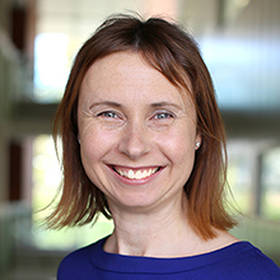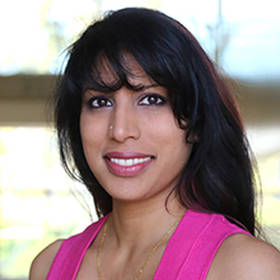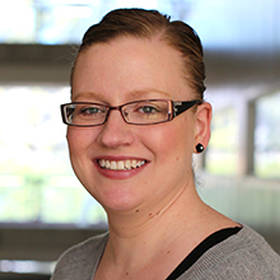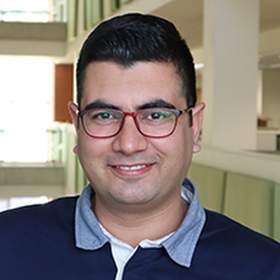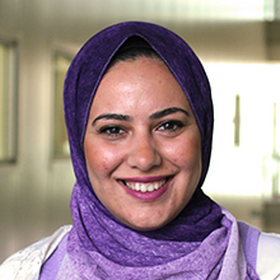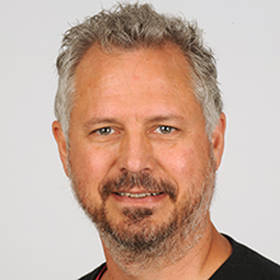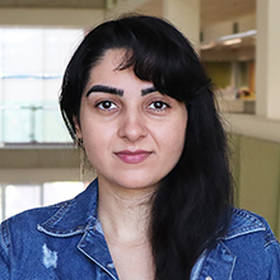- About
- People
- Projects
- Key Publications
- Collaborations

Breast cancer places an incredible burden on Australian women. Every year, around 20,000 Australian women are diagnosed with breast cancer alone – a disease that devastates people’s lives and is often fatal. Our Breast Biology and Cancer Unit are researching the biological mechanisms that underpin this high incidence of breast cancer, and how we can better detect, diagnose and treat breast cancer. The Unit also investigates common breast conditions that arise during breastfeeding, including mastitis and low milk supply. The overarching objective of the Unit is to develop new technologies that help reduce the burden of breast cancer and other breast conditions, and help people take control of their breast health from adolescence through to old age.
The Breast Biology and Cancer Unit was established at the BHI in 2011 as part of the collaborative links established at The Queen Elizabeth Hospital (TQEH).
Research projects for Honours, Masters and PhD students are available in our laboratory – please read the Projects available and contact [email protected] to discuss these further.
Other related websites: INFORMD (INformation FORum on Mammographic Density) and the Australian Breast Cancer Research website.
Researchers
-

Associate Professor Wendy Ingman
Position: Lead Researcher
Theme: Cancer
Phone: +61 8 8222 6141
Email: [email protected]
Profile: View profile
UoA: Wendy Ingman
-

Dr Pallave Dasari
Position: Postdoctoral Researcher
Theme: Cancer
Phone: +61 8 8133 4001
Email: [email protected]
Profile: View profile
-

Leigh Hodson
Position: Research Assistant
Theme: Cancer
Phone: +61 8 8222 6590
Email: [email protected]
-

Dr Ali Farajpour Ouderji
Position: Postdoctoral Researcher
Theme: Cancer
Email: [email protected]
Profile: View profile
-

Students
-

Joe Wrin
Position: Student
Theme: Cancer
Email: [email protected]
Profile: View profile
UofA: Joe Wrin
-

Dr Avisak Bhattacharjee
Position: Student
Theme: Cancer
Email: [email protected]
Profile: View profile
UoA: Avisak Bhattacharjee
-

-

Student Alumni (since 2017)
| Name | Degree | Year Awarded | Thesis title | Supervisors |
|---|---|---|---|---|
| Amita Ghadge | PhD, The University of Adelaide | 2021 | The developmental origins of mammographic density and breast cancer risk | Ingman W, Dasari P, Robker R |
| Keirrthana Jothy | First Class Honours, The University of Adelaide | 2021 | The impact of the ovarian cycle on tumour-associated macrophages in MMTV-PyMT mice | Ingman W, Townsend A |
| Zuhal Naderi | First Class Honours, The University of Adelaide | 2021 | Androgen receptor signalling in high mammographic density | Ingman W, Hickey T |
| Sarah Bernhardt | PhD, The University of Adelaide | 2020 | The effect of menstrual cycling on genomic predictive biomarkers in premenopausal breast cancer | Ingman W, Price T, Townsend A |
| Maddison Archer | PhD, The University of Adelaide | 2020 | Immune Modulation of Mammographic Density and Breast Cancer Risk | Ingman W, Evdokiou A, Dasari P |
| Vahid Atashgaran | PhD, The University of Adelaide. Dean's Commendation for Doctoral Thesis Excellence. | 2018 | Hormone and transcription factor regulation of cytokines in the mammary gland | Ingman W, Dasari P, Barry S |
| Siti Noor Din | PhD, The University of Adelaide. | 2017 | Effect of C1q null mutation on mammary gland development | Ingman W, Robertson S |
For a list of all publications please visit A/Prof Wendy Ingman’s University of Adelaide Researcher Profile.
Ingman WV. The gut microbiome: a new player in breast cancer metastasis. Cancer Research; 2019. 79(14):3539-3541.
Pubmed Link: https://www.ncbi.nlm.nih.gov/pubmed/31308136
Hugo HJ, Zysk A, Dasari P, Britt K, Hopper JL, Stone J, Thompson EW, Ingman WV. InforMD: A new initiative to raise public awareness about breast density. eCancer; 2018. 12:807.
Pubmed Link: https://www.ncbi.nlm.nih.gov/pubmed/29492101
Atashgaran V, Wrin J, Barry SC, Dasari P, Ingman WV. Dissecting the biology of menstrual cycle-associated breast cancer risk. Frontiers in Oncology; 2016. 6:267.
Pubmed Link: https://www.ncbi.nlm.nih.gov/pmc/articles/PMC5183603/
Sun X, Glynn DJ, Hodson LJ, Huo C, Britt K, Thompson E, Woolford L, Evdokiou A, Pollard JW, Robertson SA, Ingman WV. CCL2-driven inflammation increases mammary gland stromal density and cancer susceptibility in a transgenic mouse model. Breast Cancer Research; 2017. 19(1):4.
Pubmed Link: https://www.ncbi.nlm.nih.gov/pubmed/28077158
Bernhardt SM, Dasari P, Walsh D, Townsend AR, Price TJ, Ingman WV. Hormonal modulation of breast cancer gene expression: implications for intrinsic subtyping in premenopausal women. Frontiers in Oncology; 2016. 6:241.
Pubmed Link: https://www.ncbi.nlm.nih.gov/pubmed/27896218
Ingman WV, Glynn DJ, Hutchinson MR. Inflammatory mediators in mastitis and lactation insufficiency. Journal of Mammary Gland Biology and Neoplasia; 2014, 19:161–167.
Pubmed Link: https://www.ncbi.nlm.nih.gov/pubmed/24961655
BHI Collaborators: Andreas Evdokiou (Breast Cancer Research Unit), Tim Price and Amanda Townsend (Solid Tumour Group)
External Collaborators: Erik Thompson, Queensland University of Technology, Brisbane, Australia; Kara Britt, Peter MacCallum Cancer Centre in Melbourne, Australia; Jennifer Stone, University of Western Australia, Perth, Australia; John Hopper, University of Melbourne, Melbourne, Australia; Lisa Amir, LaTrobe University, Melbourne, Australia; Luke Grzeskowiak and Wendy Raymond, Flinders University, Adelaide Australia; Lucy Woolford, Rebecca Robker and Mark Hutchinson and Lucy Woolford, The University of Adelaide, Adelaide, Australia; Steve Birrell, Wellend Health, Adelaide, Australia.

